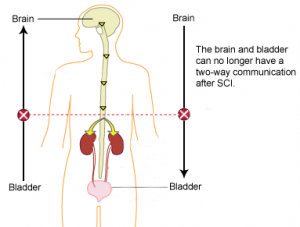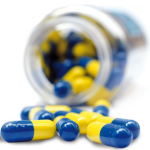What is a Neurogenic Bladder?
Did you know that a neurogenic (overactive) bladder affects over 30 million Americans? A neurogenic bladder is due to confusion of the nerves of the bladder, which tells your bladder you need to urinate when your bladder isn’t full or you recently used the bathroom.
Causes of a Neurogenic Bladder
Sometimes the causes of a neurogenic bladder remains unknown, but most often the reasons may include:
· Urinary tract infections
· Nerve damage due to an injury or surgery to your bladder
· Kidney disease
· Parkinson’s disease can affect a neurogenic bladder
· Medication side effects
Diagnosing Neurogenic Bladder
These tests can help find the cause of your neurogenic bladder:
· Cystometry: Checks how much urine your bladder can store and your ability to sense fullness, and helps detect nerve over activity
· Post void residual volume: This test is used to measure the amount of urine left in your bladder after you empty it
· Urinalysis: Tests for infections present in your urine
· Uroflowmetry: Measures your urine’s flow rate and the volume you void at one time
Your doctor may ask you questions to help determine how much your neurogenic bladder has affected your life. You could rate on a scale of 1 to 5 how much you have been troubled by things like urinary leaks, going to the bathroom often at work, and waking up at night to go. Your doctor might also ask you to keep a voiding diary of your bathroom trips.
Lifestyle Treatments
To lower the effects of neurogenic bladder, you should consider cutting down on caffeinated drinks, alcohol, and spicy foods. But don’t cut back on your fluids which then could make your urine more concentrated. Concentrated urine can irritate your bladder and cause the burning sensation. Eat a high-fiber diet to prevent constipation, which can also make neurogenic bladder much worse, Your urologist may want you to try retraining your bladder in the course of scheduled bathroom breaks.
Kegel Exercises
Urologists often recommend exercises called Kegels. Kegels are a handy exercise because you can do them anywhere and no one will know you are doing exercises while you are sitting. Kegel consist of squeezing and holding the muscles you use to stop the flow of urine, then you release the muscle and repeat
Medications for Neurogenic Bladder
If lifestyle changes and behavioral treatments don’t relieve neurogenic bladder symptoms, the next step is usually medication. Anticholinergics are the most common medications; you will take them by mouth at least once a day. Topical estrogens — vaginal rings, tablets, or creams — are also prescribed to treat women’s symptoms.
If you are experiencing any of the symptoms mentioned here in this article, please contact our office today to schedule an appointment with the best urology doctor in NYC.
Barbara LuCore

